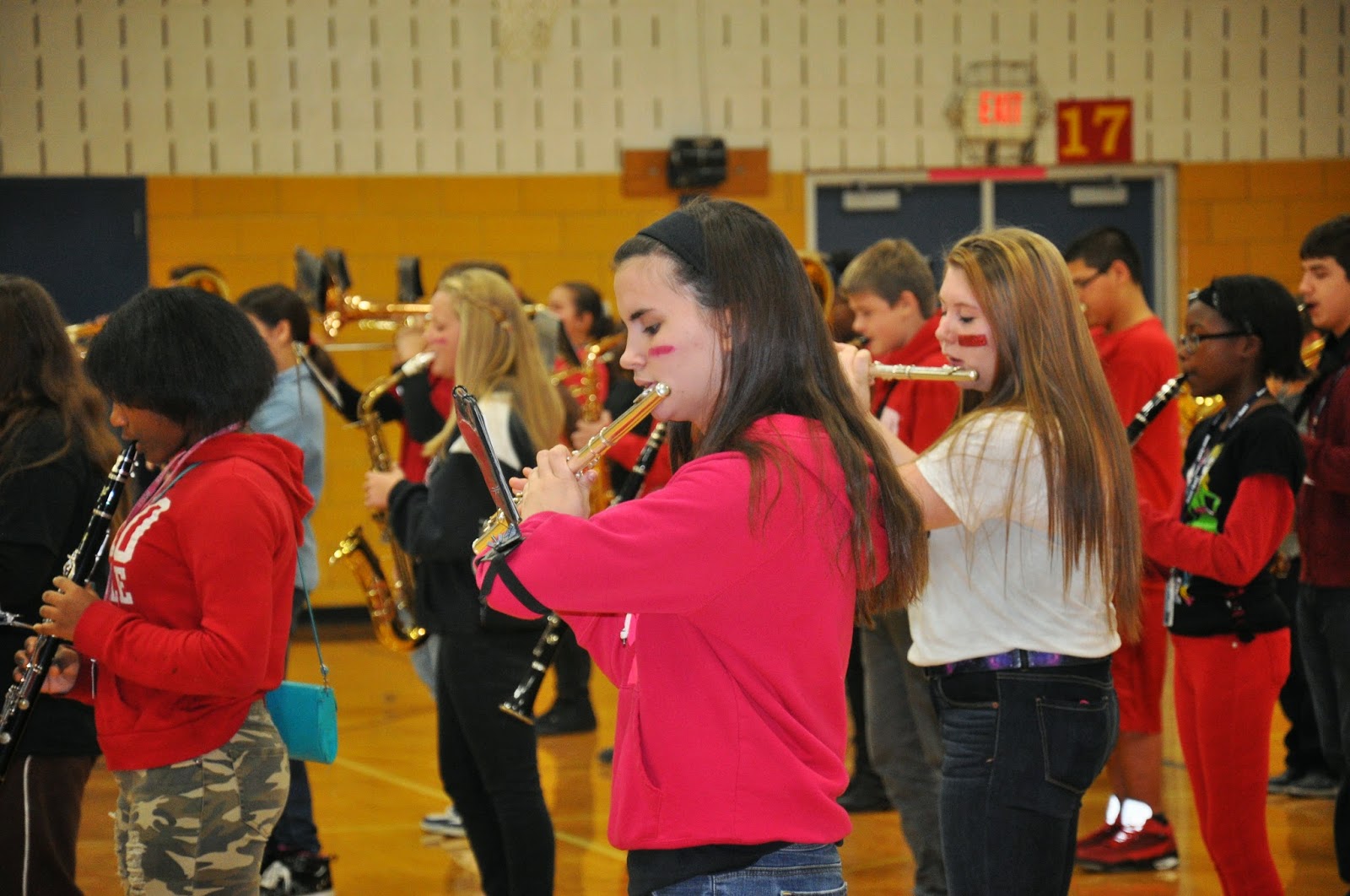Principal Michelle Tocco and the good people at Hoover Middle School hosted an anti-bullying rally this morning as part of national bullying awareness month.
Featured were the Hawk Band and several speakers. Teachers took the time to act out bullying and anti-bullying scenarios for the student body.
Students submitted short essays on bullying that were read to the entire crowd, and those students were awarded with anti-bullying T-shirts during the assembly.
In addition, the students created their own UNITY CHAIN in the cafeteria, make up of key terms about the nation-wide campaign.
Great job, Hoover students and staff.
GENERAL POINTS AND FACTS ABOUT BULLYING:
- Bullying directly affects a student’s ability to learn. Students who are bullied find it difficult to concentrate, show a decline in grades, and lose self-esteem, self-confidence, and self-worth.
- Students who are bullied report more physical symptoms, such as headaches or stomachaches, and mental health issues, such as depression and anxiety, than other students.
- In some cases, bullying has led to devastating consequences, such as school shootings and suicide.
- Bullying affects witnesses as well as targets. Witnesses often report feeling unsafe, helpless, and afraid that they will be the next target.
- Bullying is a communitywide issue that must no longer be ignored or thought of as a rite of passage. Students, parents, and educators all have a role in addressing bullying situations and changing school culture.
- The two keys to creating change are: increasing awareness that bullying has lifelong impact, and giving people the tools they need to respond effectively.
- Students can be especially effective in bullying intervention. More than 55 percent of bullying situations will stop when a peer intervenes. Student education of how to address bullying for peers is critical, as is the support of adults.
- Silence is no longer an acceptable response to bullying. Adults, students, and educators can no longer look away when they see bullying. Ignoring it won’t work. Everyone needs to be empowered with options to respond.
WHAT CAN BE DONE?
- Unite as a community – Make everyone aware that there are ongoing problems with bullying, and that this isn’t just a school issue. Adults need to get involved.
- Raise awareness – Don’t just talk about anti-bullying during anti-bullying month. Create campaign throughout the year that brings the discussion to the forefront.
- Educate others about the problem – The more anti-bullying education is offered at younger levels, the better.
- Inspire some type of action – Don’t be afraid to get involved at every level. Talk about the subject at home. Discuss it with your friends. Create your own campaigns, even if they are in small groups.
- And always remember: Over half the bullying situations STOP when a peer steps in.
Step in instead of stepping away.






























































No comments:
Post a Comment